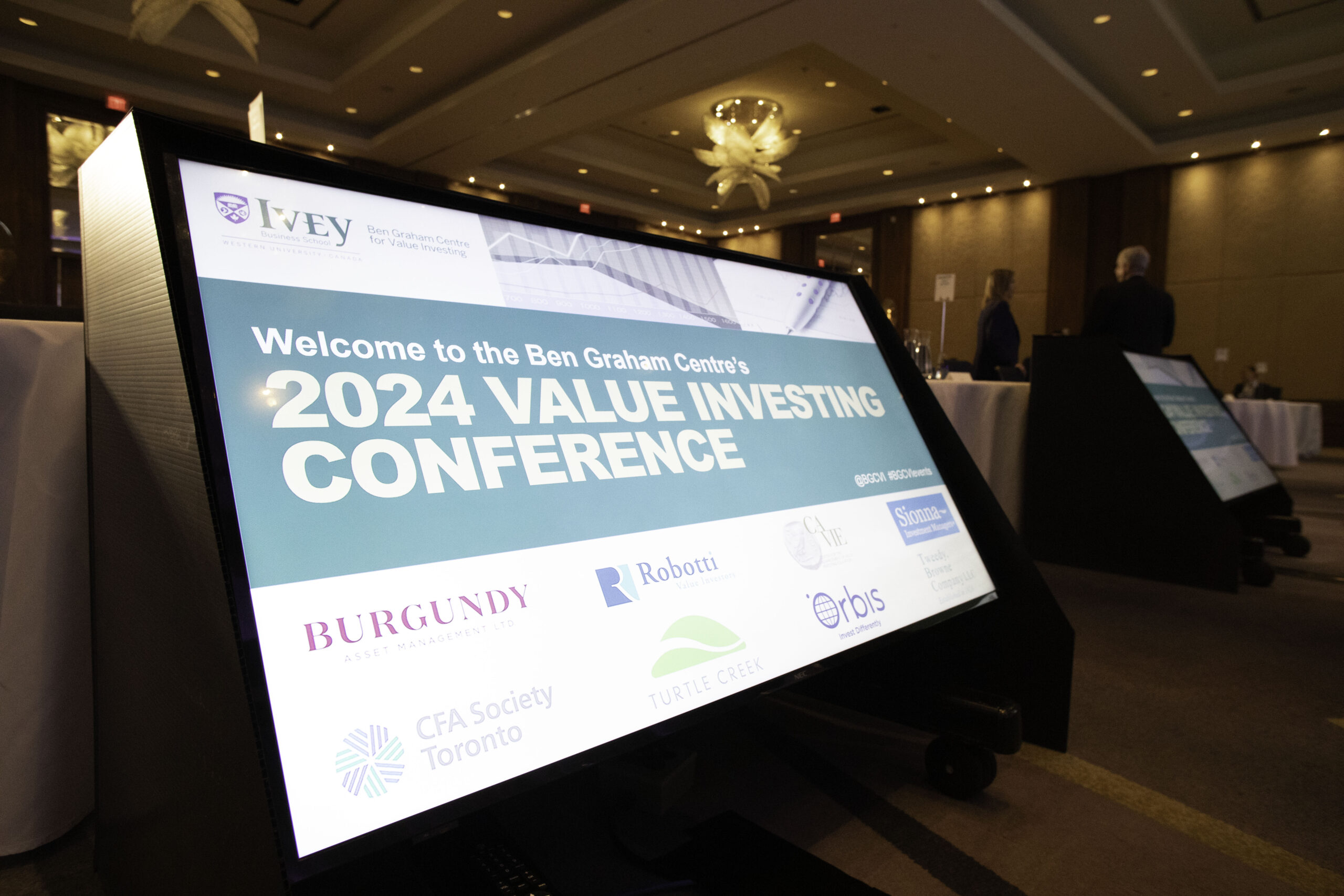
“In our own stock-market experience and observation, extending over 50 years, we have not known a single person who has consistently or lastingly made money by thus following the market. We do not hesitate to declare that this approach is as fallacious as it is popular.” -Benjamin Graham
Most investors are familiar with Jason Zweig’s must-read columns in The Wall Street Journal. The noted author of The Devil’s Financial Dictionary and Your Money and Your Brain, on neuroscience and financial decision making, Zweig is also the editor of Benjamin Graham’s iconic book The Intelligent Investor with a revised edition out in October 2024.
In his keynote talk at the recent Ben Graham Centre’s 2024 Value Investing Conference in Toronto, Zweig posed the question: “What can we learn from Benjamin Graham that still matters?”
The Intelligent Investor was published in 1949 and has inspired a legion of investors including Charlie Munger and Warren Buffett, who called it “the best book about investing ever written.” But can a 75-year-old book and its author— who is considered the “father of value investing”—still guide investors today? After all, the world is a very different place than it was in 1949, pre-computer, pre-internet, pre-AI…pre ETFs.
Zweig argues that Benjamin Graham’s genius—as an intellectual, investor, and psychologist—are enduring. Graham was a student, scholar, teacher, author, and inventor who held several U.S. patents, including one that was the precursor to the pocket calculator. Prior to his graduation from Columbia University in 1914, he was offered teaching positions in three faculties: Greek and Latin philosophy, English, and mathematics. Later in life he wrote a Broadway play and translated books and poems from Uruguayan, Latin, and Greek.
Although he began investing independently in 1925, Graham created a fund in 1936 called Graham-Newman Corp., which ran until 1956. During this period, it compounded wealth annually at 14.7 per cent compared to the S&P500 at 12.2 per cent. (Zweig argues the Fund produced closer to 17.39 per cent factoring in the performance of Geico which was spun out.)
Perhaps his greatest lasting contribution was not as a purveyor of financial metrics and formulas but as an astute observer of human psychology. Knowing that there was always likely to be a gap between what people should do and what they would do, Graham stressed achievable solutions, not optimal ones. “You are neither right nor wrong because the crowd disagrees with you. You are right because your data and reasoning are right,” he argued. Both retail and professional investors are often their own worst enemies by following market trends or buying high and selling low.
Zweig regrets that popular culture has turned Graham into somewhat of a caricature, what he terms “Formulaic Graham” represented by the various equations Graham used to calculate an investment’s intrinsic value. “This is not what he stood for,” says Zweig.
Instead, he proposes a different version of Graham, what he calls “Flexible Graham”, a man who was not rigid about formulas but instead concentrated on first principles, much like Plato did. Graham viewed a stock as a business, not a ticker symbol. He strived to determine the current margin of safety in an investment, and he understood the allure of Mr. Market. In other words, he organized himself for success. Unlike modern day funds, Graham benchmarked his performance, not the portfolio performance.
How can investors relate to Graham’s work today? Zweig points out that we can think of Mr. Market as an ETF and that is who active investors are truly competing against. To generate alpha consistently, firms should develop expertise in what cannot be ETF’d.
What cannot be ETF’d?
Zweig says these are “left tail things” such as size, liquidity, marketability, and popularity. In the markets, these would relate to small or micro-cap stocks, strategies such as merger arbitrage and special situations, stressed and distressed companies and bankruptcies, and stocks demoted or thrown out of indices, and U.S. community banks, for example.
Developing expertise in these areas is where alpha can be found in today’s markets, says Zweig.



